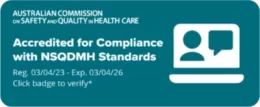Accessibility Tools
- Content scaling 100%
- Font size 100%
- Line height 100%
- Letter spacing 100%
The SANE Blog

The reality of stigma surrounding mental health issues – Q&A with Jenni.
Meet Jenni.
The reality of stigma surrounding mental health issues – Q&A with Jenni.
Jenni is a creative, positive person who believes that “the glass is always half full.” She enjoys sharing her mental health journey with professionals, carers, the general public and with others who have a lived experience of mental health issues.
Jenni is a SANE Peer Ambassador. She has lived with a diagnosis of schizo-affective disorder for over 20 years. Schizo-affective disorder is a mental health condition marked by a combination of schizophrenia symptoms, such as hallucinations or delusions and mood disorder symptoms, such as depression or mania.
In this Q&A guest blog, Jenni shares some of her experiences about the everyday impact of stigma surrounding mental health issues and why she feels so strongly about changing attitudes and educating others about complex mental health issues.
StigmaWatch: Thanks so much for chatting with us, Jenni. You were diagnosed with schizo-affective disorder when you were 15 years old. How did you feel when you received this diagnosis?
Jenni: When I was officially diagnosed I felt a great sense of relief that what I had been enduring finally had a name. However, I also felt that I now had a ‘tag’ that would follow through life.
StigmaWatch: Have you ever experienced self-stigma?
Jenni: No. I wouldn’t say I’ve experienced self-stigma. Although, at times I have been tempted to withhold the fact I have mental health condition because of a perceived negative reaction from others.
StigmaWatch: Has a fear of stigma ever led to you being hesitant to seek treatment for your condition?
Jenni: Yes. It certainly has caused me to delay accessing treatment. It is especially daunting going to emergency departments where people with a physical illness are fast-tracked through to a doctor, whereas people presenting with a mental health crisis might be put alone in a small room (sometimes locked) for a long period until a suitable bed is found.
In my experience, many of the nurses in an emergency department have minimal training and experience in dealing with mental illness, and because of this they simply don’t know how to deal with these situations. This in itself is enough to discourage a person from reaching out and asking for help.
StigmaWatch: SANE’s recently launched the National Stigma Report Card, which presents the findings from Our Turn to Speak, the most comprehensive survey of its kind in Australia. Almost 2000 Australians living with complex mental health issues answered questions regarding their experiences of stigma and discrimination across several life domains. In what areas of your life have you experienced stigma as a result of your experience of mental health issues?
Jenni: The most significant stigma I have experienced is within the healthcare system due to my diagnosis. I have been labelled as dangerous on multiple occasions, even when I could not get out of bed. In one instance when I had been admitted to hospital, a yellow card was tied to my bed to let the staff know that I had a significant mental health condition and to ‘be careful’.
I have also had housing applications rejected as soon as the real estate agent realised that I had a mental health condition. There is an enormous need for education across the entire community, including real estate agents. Real estate agents have plenty of contact with people who live with mental health issues - because many of us are renters. A good way to combat the stigma that we face by these organisations is to ensure that there is an education piece included in agent training courses addressing mental ill-health.
I refuse to hide my condition – it is part of who I am.
StigmaWatch: Why is it so important that we continue our work to eliminate the stigma around mental health issues?
Jenni: I think the stigma of living with a mental illness is a real barrier to some people getting help for symptoms that are entirely treatable.
It also makes those of us diagnosed with mental health conditions such as schizo-affective disorder not want to ‘be ourselves’. Many of us living with a diagnosis often fear rejection or being judged. The impact of this is massive – it negatively impacts our self-esteem, and sometimes prevents us from forming new relationships and exploring opportunities.
I believe people with complex mental health issues can make a big difference in tackling stigma, simply by starting a conversation.
About the National Stigma Report Card
A vital aspect of the National Stigma Report Card project is the Recommendations for action report. Based on experiences highlighted in the Our Turn to Speak survey findings, it outlines policy changes required to guide the elimination of stigma and discrimination so all Australians can live long and fulfilling lives.
Key recommendations include developing a comprehensive, national, and centrally funded 10-year stigma-reduction program focused on changing social attitudes to complex mental health issues, and ensuring people with lived experience play a central role in training, service planning and ongoing oversight.
“We don’t need people to become more resilient in the face of stigma and discrimination, we need the stigma and discrimination to stop,” said SANE Deputy CEO Dr Michelle Blanchard.
More information about stigma reduction can be found on our SANE guide to reducing Stigma.
If you'd like to chat with other people who understand what you're going through, the SANE Forums are online 24/7. There's one Forum for people with lived experience, and another for family, friends or carers. The Forums are anonymous and moderated by health professionals, to keep the conversation safe and supportive.
Click to visit the SANE Forums now
If you see stigma or unsafe coverage of mental ill-health and suicide in the media, please send a StigmaWatch report to our team. We will work with the media outlet to edit problematic content and provide guidance on how they can cover future stories safely and accurately.
Related Posts
By accepting you will be accessing a service provided by a third-party external to https://www.sane.org/










